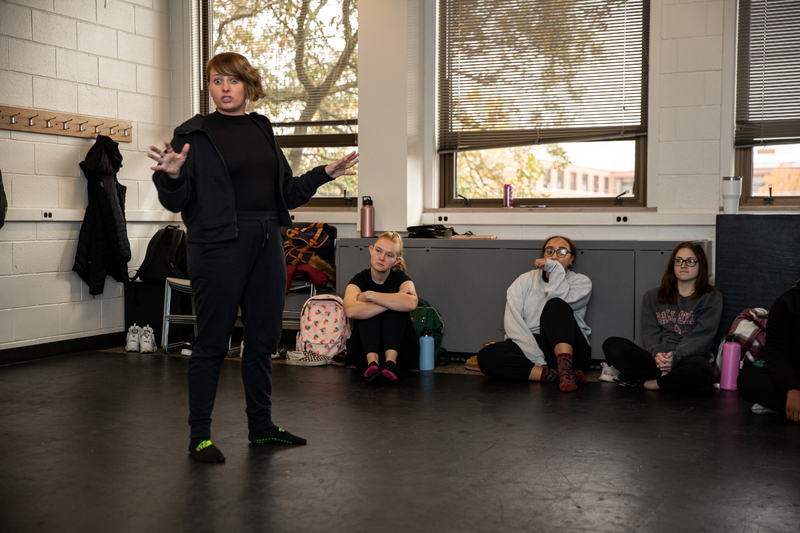Overview
Spotlight Recovery: Harnessing the Power of Oral Storytelling and Therapeutic Drama in a Community Setting
In this immersive learning course, students engaged in the development, implementation, and evaluation of a therapeutic arts-based program. The program was designed with and for shelter residents at the Muncie YWCA. The purpose of this course was to create a safe space for YWCA shelter residents to share their stories in a therapeutic environment using evidence-based techniques from Playback Theatre.
Playback Theatre is an improvisational theatre method that highlights personal stories, moments, and feelings. Developed in 1975 by Jonathan Fox and Jo Salas with the intention to acknowledge, affirm, and validate lived human experiences, Playback Theatre is used all over the world in community settings, schools, therapy groups, and peer support groups. The experience entails a conductor, a troupe (actors, musicians, and artists), and an audience. A person from the audience shares their story with the troupe who then reenacts the narrative in a way that honors and captures its essence. As a result of the enactment, all involved in a Playback Theatre performance may experience catharsis when witnessing a personal story take shape and come to life onstage.
The course was organized into three parts, comprised of 5 weeks each. Part 1 included an overview of drama therapy theory and techniques, with a specific focus on the method of Playback Therapy. Students also explored the rich history of intersection between arts and community activism and determine the roles they wil play in the design and implementation of the course program.
Part 2 included an overview of homelessness and associated factors in US history, with a focus on the importance of traumainformed care and stigma/shame reduction in the healing process. During this portion of the course, students met and began building rapport with the YWCA staff and residents as they startws to design an arts-based therapeutic program that would meet the needs of the community partner and its clients. Finally in Part 3 of the course, the students participated in sessions of the creative arts-based program based on Playback Theatre that they created within the course.
